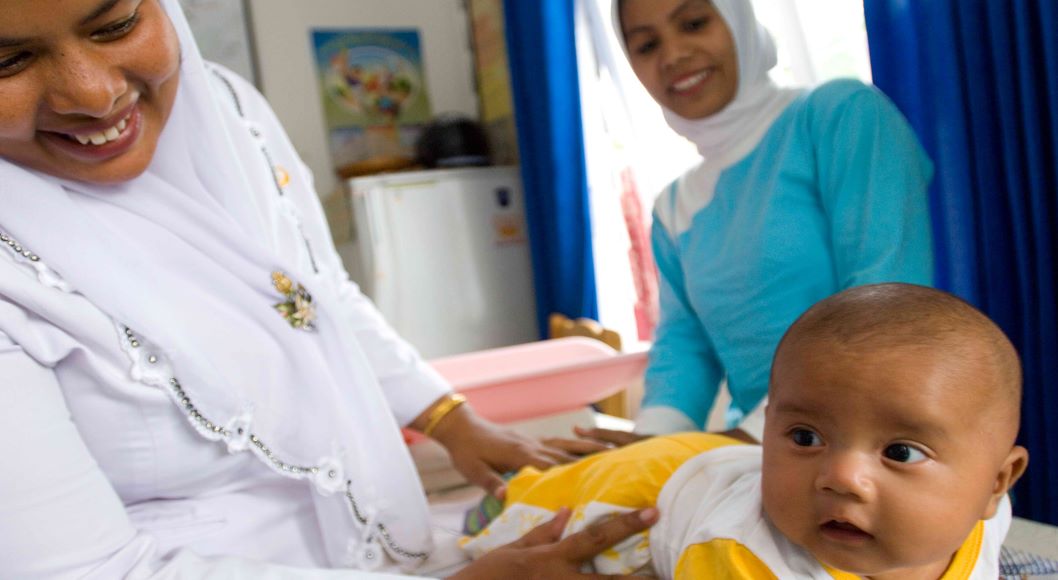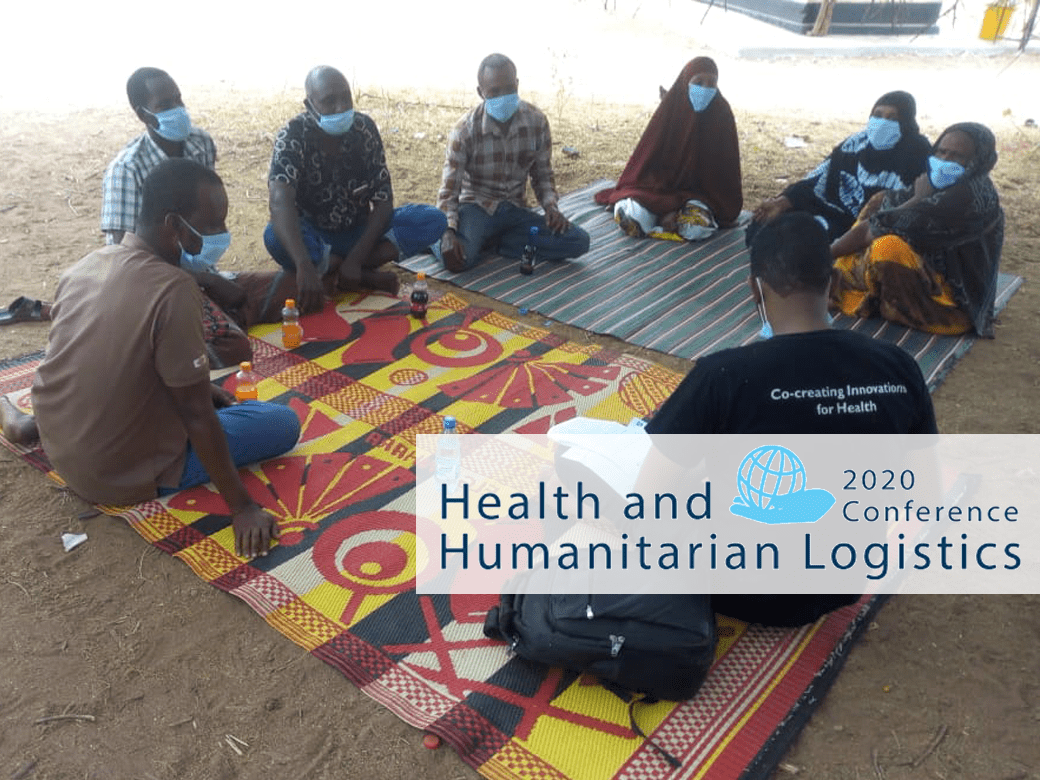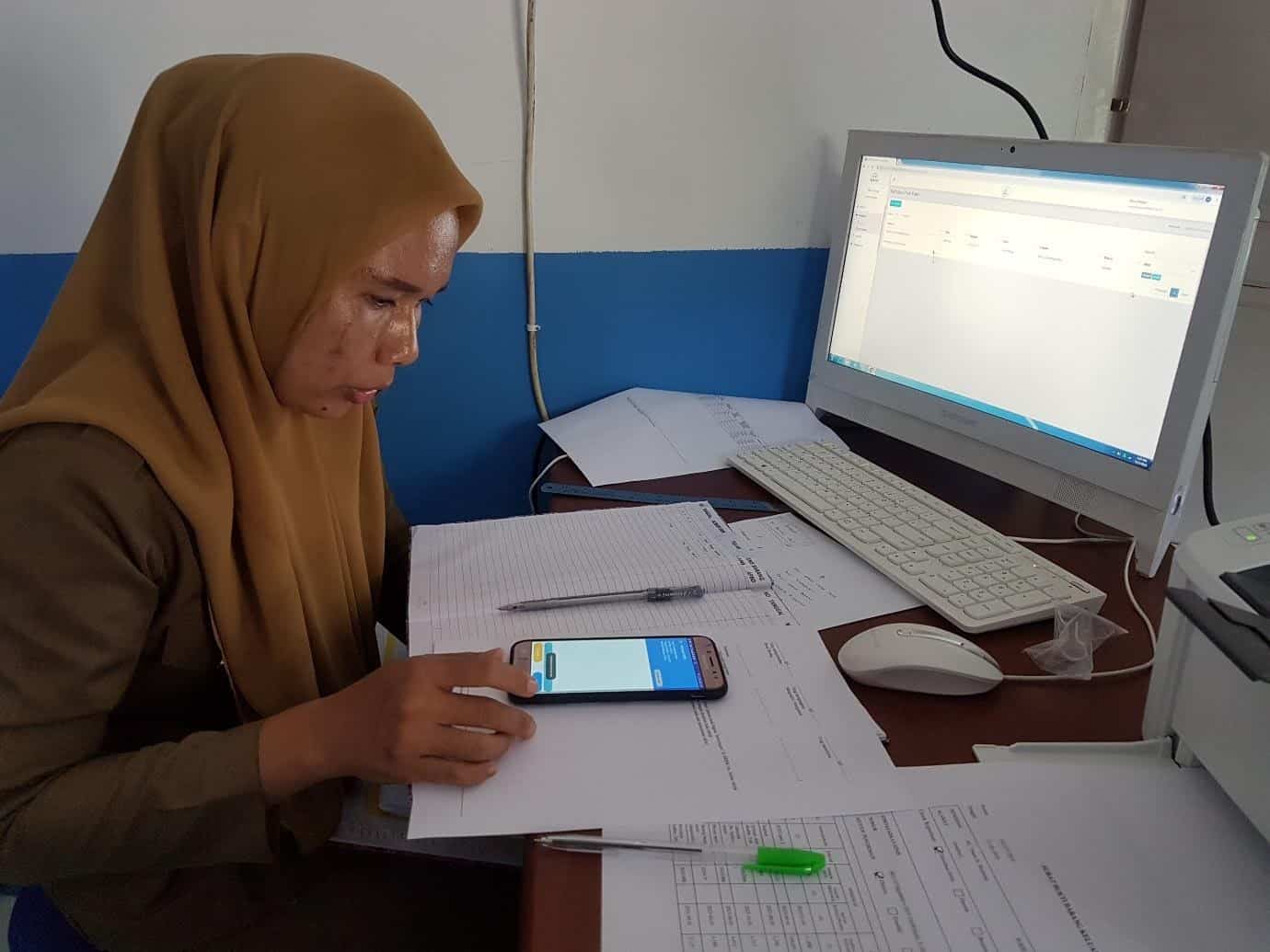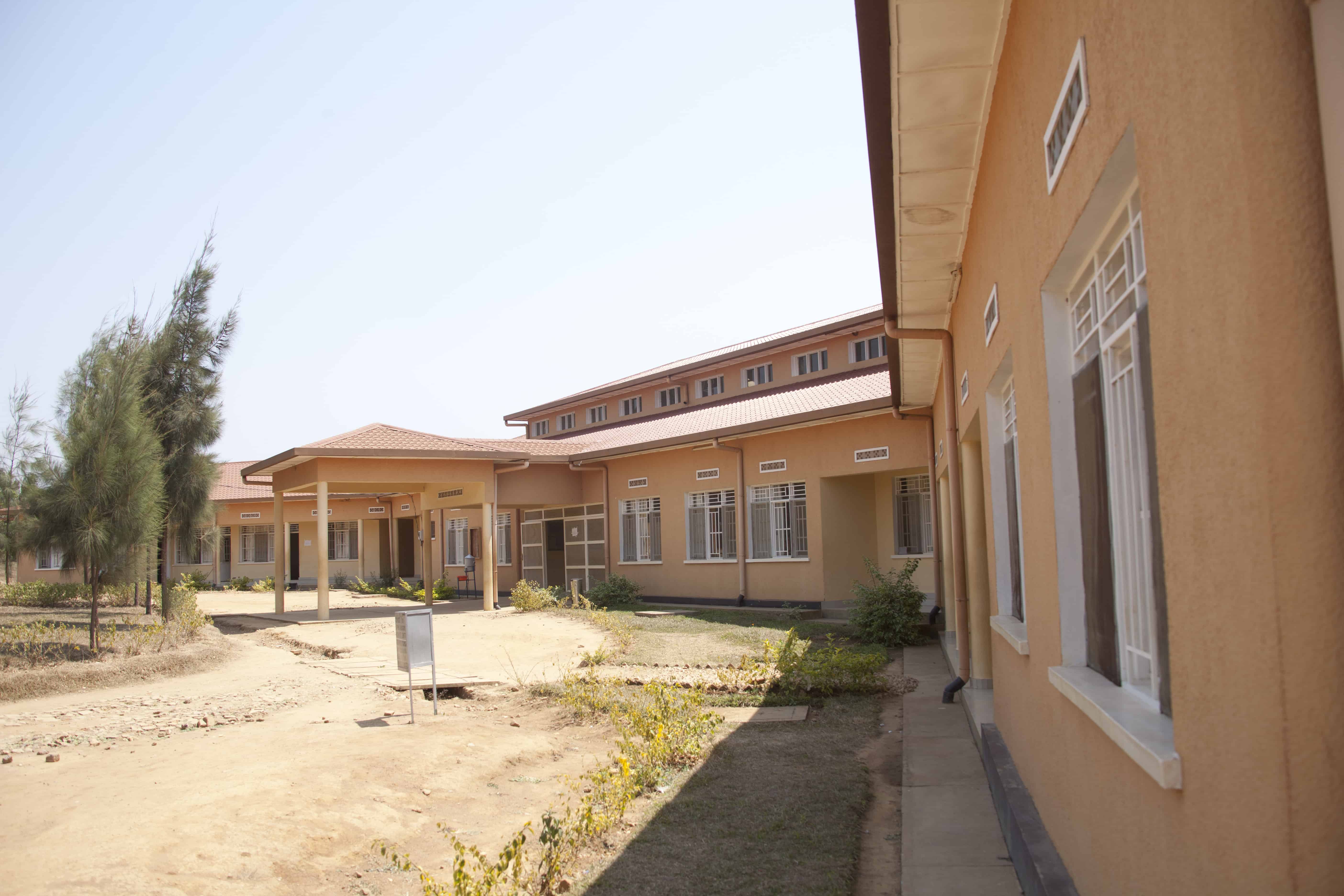The “My Choice” project’s vision is to contribute to the Government of Indonesia’s family planning (FP) goal to increase the nation’s modern contraceptive prevalence rate. The My Choice project is designed to create a consumer-focused, consumer-driven approach to assist Indonesia in addressing its stagnating contraceptive prevalence (CPR), unmet need, and skewed method mix where long-acting reversible contraceptives (LARCs) have fallen out of use.
JSI also partners with the central government to make supply chain policy improvements including developing a robust quantification methodology to accurately determine contraceptive needs for the world’s fourth largest population.
By focusing on both demand-and supply-side factors—including consumer life stage, facility readiness/postpartum FP, supply chain management (SCM), and leadership and advocacy, as well as decentralized data collection, analysis, and use—My Choice is developing an integrated demand-supply model to reach a new generation of FP adopters. My Choice works in close partnership with the Indonesian national family planning board, BKKBN and is funded by the Bill & Melinda Gates Foundation.
The JSI My Choice team collaborates with stakeholders to design a comprehensive package of data centric supply chain interventions that address critical gaps in the system. The intervention package has four key interventions that are guided by three core themes – strengthening organizational capacity, fostering collaboration and accountability, and inculcating a culture of data use for continuous supply chain improvement.
The project is building organizational capacity and has redesigned standard processes in inventory management, and created tech-based training and monitoring tools such as video tutorials and mobile apps for supportive supervision.
In addition, multi-level collaboration is being strengthened through quality improvement techniques and the use of WhatsApp groups.
Lastly, data visibility, quality, and use has improved since stakeholders have been equipped with tools to maintain accurate logistic records and reports and an inventory management and monitoring tool was created that facilitates easy decision making in particular guiding the distribution of stock to maintain adequate stock levels and monitor the overall strength of the supply chain.
RESULTS
Equipping staff throughout the system with the right tools and standard operating procedures has improved accountability and coordination at all levels. Through the project, to date JSI has:
- Trained more than 700 health workers in inventory management best practices and logistics recording and reporting. Since 2015, there has been a 44% increase in the number of health facilities with adequate contraceptive stock levels.
- Conducted skills building for 50 mentors who provided mentorship and on-the-job training to over 1000 health facility providers. Facilities that receive regular visits have shown improved supply chain performance.
- Implemented institutionalized supply chain IMPACT teams in 4 provinces and 11 districts resulting in improved collaboration amongst multiple levels of the supply chain.
- Developed innovative tools for inventory management and supportive supervision using a data centric approach which has led to improved data quality and use. With the introduction of simplified standard operating procedures and video job aids, stakeholders have been able to rapidly adopt these innovations.
JSI’s work has elevated the importance of supply chain management within the family planning program and has provided the evidence needed to convince the central and local governments to increase investment and focus in strengthening family planning supply chain systems.
Many of the lessons learned in the project districts—especially related to the use of data to guide distribution and resupply and the implementation of other supply chain management best practices—is now influencing and changing the policies and procedures at the national level.
Building on this success, using their own resources, the government has scaled up the interventions beginning in 2018, from 11 to more than 40 new districts. The project is currently working with the government to digitize its supply chain operations through the development of a warehouse management mobile application and a web based inventory management and monitoring tool.
MyChoice is led by the Johns Hopkins Center for Communication Programs (CCP) in coordination with consortium partners, Jhpiego and JSI.





